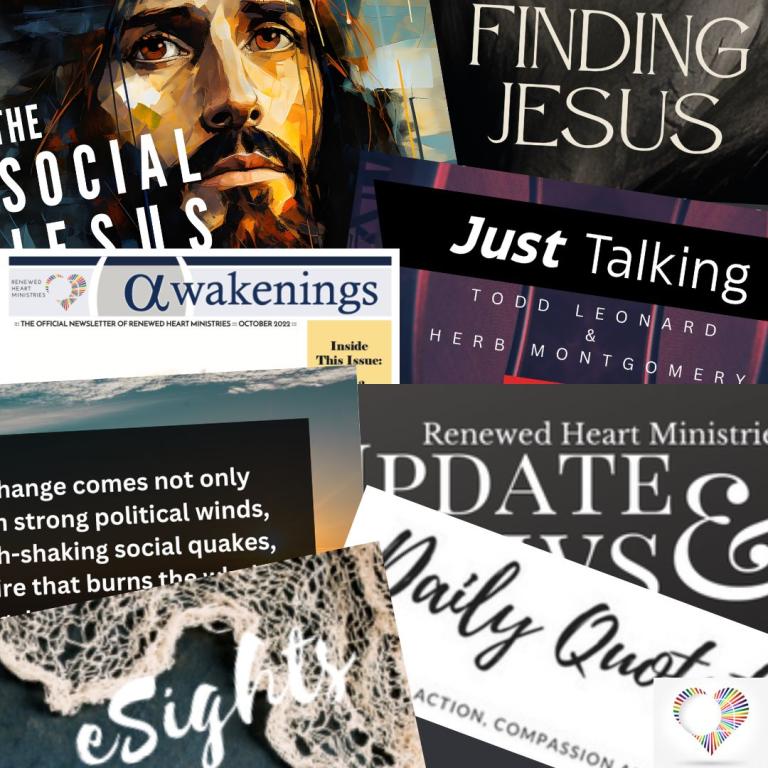
As we conclude our consideration of labelling social justice as dangerous in the context of our reading this week, it’s helpful to remember that when Jesus is referring to the strong man’s house. The strong man in the contemporary worldview would have been simultaneously referring to both the strong man in the unseen world, i.e. “the Satan,” and the strong man in our seen world, i.e. the Roman Empire. Here Jesus is referring to how Rome (the strong man) had taken over the Temple state centered in the Jerusalem temple. Remember the Mark’s Jesus says, “No one can enter a strong man’s house without first tying him up. Then he can plunder the strong man’s house.” The plundering here is the liberation of the Temple from the Roman Empire including the redistribution of the resources taken from the Jewish people through Rome’s cooption of the Temple and those resources being given back to the poor.
Welcome Readers! Please subscribe to Social Jesus Here.
(Read this series from the beginning at Part 1 and Part 2.)
This language is used repeatedly in Mark referring to the temple:
On reaching Jerusalem, Jesus entered the temple courts and began driving out those who were buying and selling there. He overturned the tables of the money changers and the benches of those selling doves, and would not allow anyone to carry merchandise through the temple courts. And as he taught them, he said, “Is it not written: ‘My house will be called a house of prayer for all nations’? But you have made it ‘a den of robbers.’” (Mark 11:15-17, emphasis added))
“Therefore keep watch because you do not know when the owner of the house will come back—whether in the evening, or at midnight, or when the rooster crows, or at dawn.” (Mark 13:35, emphasis)
In Mark, when Jesus arrives at the temple/house toward the end of Mark’s gospel, Jesus will “exorcise” those who have turned the temple/house of prayer into a den of thieves in preparation for the One who will come and reclaim his domain, reign, or to use Mark’s language, “kingdom.”
In Mark, the people don’t buy into the lies being told about Jesus. The oppressed and marginalized continue to follow Jesus. His following continues to grow until Jesus is gathering such a following that he must be silenced.
What can we glean from this today?
In Binding the Strong Man, Myers shares a statement from Juan Luis Segundo that serves as a warning.
“The blasphemy resulting from bad apologetics will always be pardonable…. What is not pardonable is using theology to turn real human liberation into something odious. The real sin against the Holy Spirit is refusing to recognize, with “theological” joy, some concrete liberation that is taking place before one’s very eyes. (Signs of the Times, Theological Reflections, p. 30 quoted by Ched Myers in Binding the Strong Man: A Political Reading of Mark’s Story of Jesus, p. 167)
Turning human liberation into something odious. Refusing to recognize with joy the concrete liberation of those our systems are harming. How often have Christians found themselves obstructing or afraid of social changes toward justice and equity?
I think of how certain Christians have feared the women’s liberation movement, opposed the abolition of slavery, or are still opposed to making our world a safer place for those who identify as lesbian, gay, bisexual, transgender, and/or queer/questioning. I think of how certain Christians are opposed to political movements attempting to make our world safer for children by passing background checks for firearms. The number one cause of death of school age children in the U.S. is not library books or drag queens, but mass shootings. Certain Christian leaders seek to inspire fear among middle class people about programs to have the ultra-wealthy pay their fair share of taxes to fund more programs for the poor and disenfranchised.
Sometimes I wonder if we are even reading the same gospel stories about Jesus, the peace maker, the liberator of the poor, the Jesus who included those his society was pushing to the edges.
If we take nothing else from this week’s reading, my prayer is that it helps us to consider whether we are genuinely using the wisdom of Jesus’ teachings as we assess the work and progress of those presently shaping our world into a safer, compassionate, just home for everyone. Are we putting our own effort behind and alongside those engaged in this work, or are we saying, “By the prince of demons they are driving out demons”? May we have the wisdom to see the that world is not being “turned upside down” but right side up (Acts 17:6).
Are you receiving all of RHM’s free resources each week?
Begin each day being inspired toward love, compassion, justice and action. Free.
Sign up at:
https://renewedheartministries.com/Contact-forms/?form=EmailSignUp















